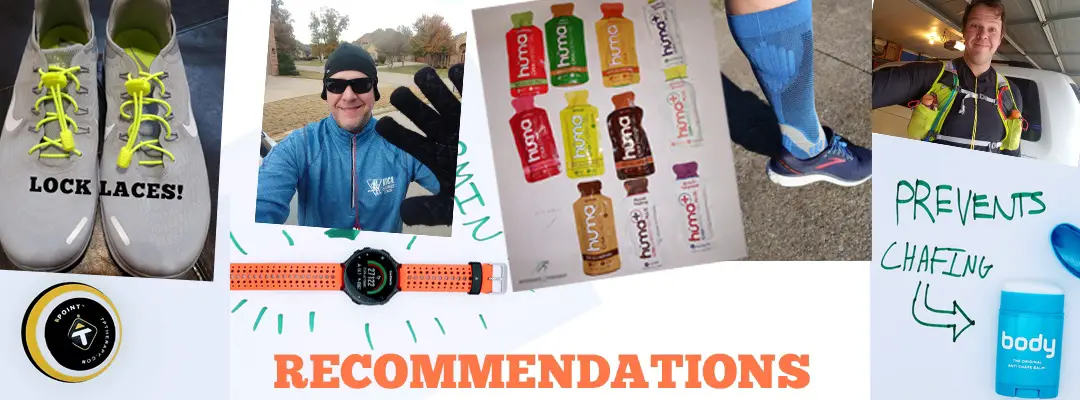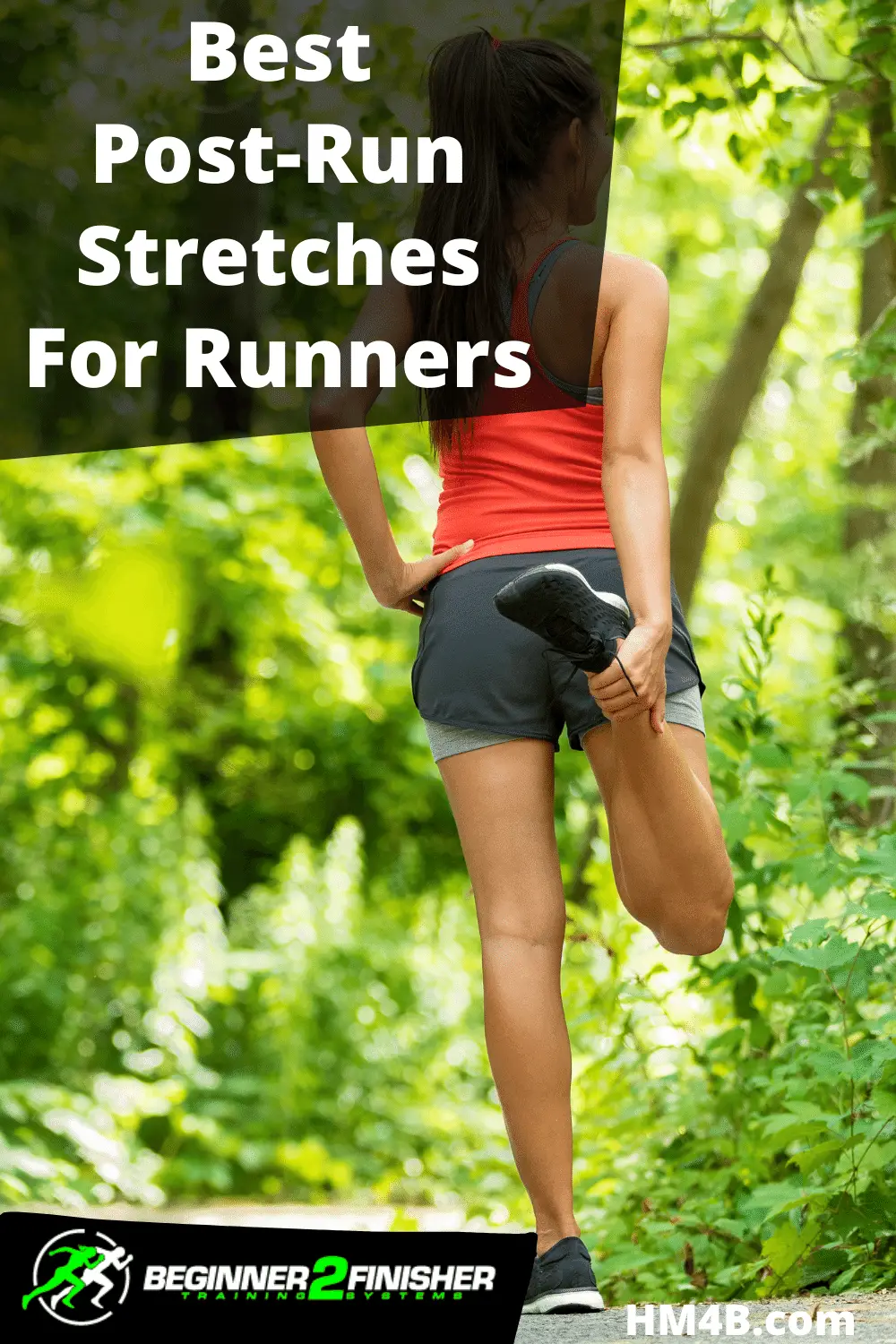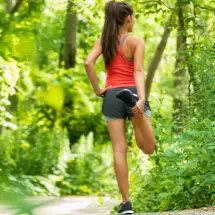Introduction
If you’re a runner, you’ll already be aware of the importance of static stretching when you’ve completed your run, so we’re going to look at the best post-run static stretches for runners.
One: Thigh (Quad) Stretch
Getting Into Position
1) Stand up straight with your feet parallel and your hips square. You can use a wall for support if needed.
Stretching
1) Raise your left foot behind you and grab it with one hand.
2) Gently pull your heel in toward your left buttock while staying upright. Keep the knees close together.
Holding
Hold for around fifteen to thirty seconds and then swap to your right leg.
Rest Time
Rest for fifteen seconds before moving to the next stretch.
Two: Hamstring Stretch
Getting Into Position
1) Choose a comfortable surface and lie down flat on your back. Extend your legs.
2) Get your lower back against the floor and make sure your hips are level with each other, so your body is straight.
3) Bend your left knee slightly and place the sole of your foot against the floor, but keep your leg stretched out.
Stretching
1) Gently straighten your right knee and put your hands under the back of your leg to support it.
2) Keep your hips on the floor as you lift your right leg up toward your head. Your leg should stay straight, so that you feel the pull in your hamstring.
Holding
Hold this stretch for twenty to thirty seconds, and then gently release and switch sides, repeating the process with your left leg lifted.
Rest Time
No need to rest before moving on to the next stretch.
Three: Calf Stretch
Getting Into Position
1) Get an exercise step, a sturdy box, or stand on the bottom of a flight of stairs.
2) Put your left foot firmly on the step, and position your right foot so that your toes and the ball of your foot are on the step, but the heel of your foot is over the edge. If necessary, hold onto something.
Stretching
1) Keeping your right leg straight, gently push your heel down toward the ground and slightly bend your left knee.
Holding
Hold the stretch for thirty seconds to a minute, and then swap sides.
Rest Time
Take a short break of fifteen seconds or so before you move to the next stretch.
Four: Side-lying Quadriceps Stretch
Getting Into Position
1) Lie down on your right side on a flat surface.
2) Bend your left knee and take hold of your left foot.
Stretching
1) Gently pull your left foot toward your glutes and then release.
Holding
Hold for about thirty seconds, and repeat the process up to five times before turning onto your left side and stretching your right leg.
Rest Time
No need to rest for this stretch.
Five: Glute And Piriformis Stretch
Getting Into Position
1) Stand straight with your hips and shoulders square.
2) With your hand on the wall for balance if needed, raise your right foot up to just above your left knee.
Stretching
1) Lightly bend your left knee, pushing your hips back as far as feels comfortable.
2) Gently push your right knee with one hand, but be careful not to over-stretch.
Holding
Hold for around thirty seconds before switching to the other leg.
Rest Time
Rest for fifteen to twenty seconds before you move on.
Six: Kneeling Hip-Flexor
Getting Into Position
1) Kneel down on your left knee, preferably on a padded or comfortable surface to make the stretch easier.
2) Position your right knee in front of you, with your knee and ankle at a 90° angle. Straighten your body so that you are facing forward square on.
Stretching
1) Bend at the hips and lean forward over your knee, keeping your chest open.
Holding
Hold for up to thirty seconds, and then switch sides and repeat the process with your right knee down and your left knee in front of you.
Rest Time
No need to rest before the next stretch.
Related: Best Ankle Braces For Running With Peroneal Tendonitis
Seven: Lower Back Stretch
Getting Into Position
1) Lie on a flat, comfortable surface with your legs extended and the lower part of your back pressed toward the floor.
2) Pull your legs in until your feet are flat on the floor.
Stretching
1) Draw your right knee up to your chest and gently pull it in, with your leg bent at the knee until you feel the stretch.
2) Place the sole of your right foot back on the floor and swap to the left foot.
3) Draw both legs to your chest at the same time.
Holding
Hold each leg for fifteen seconds, and both legs for a further fifteen seconds.
Rest Time
No need to rest before moving on after this stretch.
Related: Should You Stretch Before Or After Weight Training?
Eight: Iliotibial Band Stretch
Getting Into Position
1) Stand up straight and then cross your right leg behind the left leg.
Stretching
1) Lean forward a little way.
2) Begin gently stretching to your left, lifting your right arm above your head and leaning it to the left.
Holding
Hold for thirty seconds and then switch legs.
Rest Time
Rest for twenty seconds before moving on.
Nine: Standing Hip Flexor Stretch
Getting Into Position
1) Position your left leg a step in front of your right leg, with your weight centered in the middle.
2) Make sure that both feet are pointing straight forward, your hips are beneath your shoulders, and your torso is square.
Stretching
1) Without bending your back or sticking out your buttocks, lightly bend your left leg and push forward until you feel the stretch in your right hip.
Holding
Hold for fifteen seconds and then swap so that your right leg is forward and you are stretching your left hip.
Rest Time
Rest for ten seconds if you would like to, or move straight into the next stretch.
Summary
Good stretching after a workout is key to reducing post-workout soreness and to ensuring your muscles cool down correctly. It is not good to shock your body by suddenly ceasing to move, so always make time for a cool-down period at the end of a workout, particularly if it has been strenuous.
Related: 11 Reasons Why Your Running Performance Isn’t Improving!
| Help support me and subscribe to my YouTube channel. YouTube video - 30 ways to make your runs less painful! Coach Scott's Credentials:
|
To sign up for a FREE half marathon training schedule, log sheet, and pace predictor CLICK HERE.

Recommended gear for runners
Connect with me:
| facebook.com/BeginnerToFinisher/ |
References
https://www.runnersworld.com/training/g20862016/cool-down-routine/
https://www.verywellfit.com/essential-post-run-stretches-2911936
https://blog.mapmyrun.com/5-post-run-stretches-boost-performance/
https://www.nhs.uk/live-well/exercise/how-to-stretch-after-a-run/

